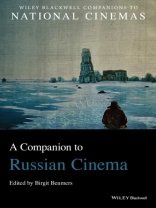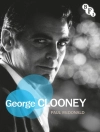A Companion to Russian Cinema provides an exhaustive and carefully organised guide to the cinema of pre-Revolutionary Russia, of the Soviet era, as well as post-Soviet Russian cinema, edited by one of the most established and knowledgeable scholars in Russian cinema studies.
- The most up-to-date and thorough coverage of Russian, Soviet and post-Soviet cinema, which also effectively fills gaps in the existing scholarship in the field
- This is the first volume on Russian cinema to explore specifically the history of movie theatres, studios, and educational institutions
- The editor is one of the most established and knowledgeable scholars in Russian cinema studies, and contributions come from leading experts in the field of Russian Studies, Film Studies and Visual Culture
- Chapters consider the arts of scriptwriting, sound, production design, costumes and cinematography
- Provides five portraits of key figures in Soviet and Russia film history, whose works have been somewhat neglected
İçerik tablosu
Acknowledgments xv
Notes on Transliteration and References xvi
Introduction 1
Birgit Beumers
Part I Structures of Production, Formation, and Exhibition 21
1 The Film Palaces of Nevsky Prospect: A History of St Petersburg’s Cinemas, 1900–1910 23
Anna Kovalova
2 (V)GIK and the History of Film Education in the Soviet Union, 1920s–1930s 45
Masha Salazkina
3 Lenfilm: The Birth and Death of an Institutional Aesthetic 66
Robert Bird
4 The Adventures of the Kulturfilm in Soviet Russia 92
Oksana Sarkisova
5 Soiuzdetfilm: The Birth of Soviet Children’s Film and the Child Actor 117
Jeremy Hicks
Part II For the State or For the Audience? Auteurism, Genre, and Global Markets 137
6 The Stalinist Musical: Socialist Realism and Revolutionary Romanticism 139
Richard Taylor
7 Soviet Film Comedy of the 1950s and 1960s: Innovation and Restoration 158
Seth Graham
8 Auteur Cinema during the Thaw and Stagnation 178
Eugénie Zvonkine
9 The Blokbaster: How Russian Cinema Learned to Love Hollywood 202
Dawn Seckler and Stephen M. Norris
10 The Global and the National in Post?]Soviet Russian Cinema (2004–2012) 224
Maria Bezenkova and Xenia Leontyeva
Part III Sound – Image – Text 249
11 The Literary Scenario and the Soviet Screenwriting Tradition 251
Maria Belodubrovskaya
12 Ideology, Technology, Aesthetics: Early Experiments in Soviet Color Film, 1931–1945 270
Phil Cavendish
13 Learning to Speak Soviet: Soviet Cinema and the Coming of Sound 292
Lilya Kaganovsky
14 Cinema and the Art of Being: Towards a History of Early Soviet Set Design 314
Emma Widdis
15 Stars on Screen and Red Carpet 337
Djurdja Bartlett
16 Revenge of the Cameramen: Soviet Cinematographers in the Director’s Chair 364
Peter Rollberg
Part IV Time and Space, History and Place 389
17 Soldiers, Sailors, and Commissars: The Revolutionary Hero in Soviet Cinema of the 1930s 391
Denise J. Youngblood
18 Defending the Motherland: The Soviet and Russian War Film 409
Stephen M. Norris
19 Shooting Location: Riga 427
Kevin M. F. Platt
20 Capital Images: Moscow on Screen 452
Birgit Beumers
Part V Directors’ Portraits 475
21 Boris Barnet: “This doubly accursed cinema” 477
Julian Graffy
22 Iulii Raizman: Private Lives and Intimacy under Communism 500
Jamie Miller
23 The Man Who Made Them Laugh: Leonid Gaidai, the King of Soviet Comedy 519
Elena Prokhorova
24 Aleksei Gherman: The Last Soviet Auteur 543
Anthony Anemone
25 Knowledge (Imperfective): Andrei Zviagintsev and Contemporary Cinema 565
Nancy Condee
Appendix Chronology of Events in Russian Cinema and History 585
Bibliography 614
Index 631
Yazar hakkında
Birgit Beumers is Professor of Film Studies at Aberystwyth University (UK). She specialises in Russian culture, especially cinema and theatre. Her most recent publications include A History of Russian Cinema (2009) and Performing Violence (with Mark Lipovetsky, 2009); she has edited Directory of World Cinema: Russia (2010; 2014), The Cinema of Alexander Sokurov (with N. Condee, 2011), Russia’s New Fin de Siècle (2013), and Cinema in Central Asia: Rewriting Cultural Histories (with M. Rouland and G. Abikeyeva, 2013). She is editor of Kino Kultura and of Studies in Russian and Soviet Cinema.












